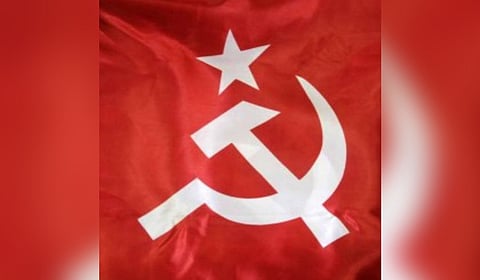

KOCHI: With its citadels in West Bengal and Tripura crumbling down just like the Kremlin collapse of 1991, the CPM is at a risk of losing its national party status and sees the upcoming Lok Sabha elections as a litmus test. Though there are different criteria to be classified as a national party, the one that is handy for the party currently is securing 11 Lok Sabha seats from three states.
However, the CPM leadership is convinced that it’s easier said than done and hence is leaving no stones unturned in its desperate attempt to retain the recognition as a national party. Besides Kerala, its sole remaining bastion, and Tamil Nadu, where the party hopes to pillion ride on its ally DMK, the CPM is finding it difficult to get its nominee elected from any other state, though it is hoping against hope to get at least one seat from its erstwhile stronghold West Bengal.
Keeping that in mind, the CPM has gone all out to boost its vote share in Kerala in the general elections and has fielded all its candidates, including independents it backs, under the official party symbol - the sickle, hammer, and star. The party’s nominee for Idukki Joice George, who contested on other symbols in 2014 and 2019, has opted for the CPM symbol this time. Former IUML leader K S Hamsa, who is the CPM candidate for Ponnani, is also contesting on the party symbol.
Kerala, being the lone state where the party is now in power, the CPM is aiming to win the maximum seats here and increase the vote share, according to political observers. The CPM, which has only three members in the current Lok Sabha, garnered only 1.75% votes nationally in the 2019 LS polls.
“The increase of vote share is crucial to maintaining the national party status. Hence the CPM is attempting to expand its vote share by fielding more candidates on its official symbol,” said political analyst J Prabhash.
What it takes
According to the Election Commission’s Political Parties and Election Symbols handbook of 2019, a political entity can achieve national party status thus:
Being recognised as a state party in four or more states
Or, by having its candidates garner at least 6% of the total valid votes in any four or more states during the previous Lok Sabha or Assembly elections, along with having at least four Members of Parliament from the last Lok Sabha polls.
Alternatively, a party can attain national party status if it has secured at least 2% of the total seats in the Lok Sabha, that is 11, from no fewer than three states.
No more experiments with independents
The CPM’s experiment with independents had yielded results in Idukki, Ernakulam, and Chalakudy LS constituencies in the past elections. In Ernakulam, considered a Congress fortress, Sebastian Paul and Xavier Arackal won as independents.
Actor Innocent wrested the Chalakudy seat from UDF in 2014 while Joice George, leader of the High-range Samrakshana Samithi which was at the forefront of protests against the Kasturirangan and Madhav Gadgil reports, won from Idukki in 2014.
Left commentator N M Pearson said the CPM has abandoned the political experiment with independents for garnering maximum votes under its banner. “The party has only one agenda this time, which is to maintain its national party status. It has no confusion in allocating the party symbol to even independents like Hamsa in Ponnani,” he added.
Currently, the CPM is recognised as a state party in Kerala, Tamil Nadu, Tripura, and West Bengal. However, in West Bengal, where it was in power for more than three decades, the party has no representation in the state assembly and Parliament.
The ECI revoked the national party status of CPI and a few other parties last year.
Privileges of a national party
A common party symbol across states, for both LS and assembly polls, free airtime during elections on public broadcasters, and allotted space for a party office in New Delhi. Permitted to deploy higher number of star campaigners for elections.
Decline of CPM over the years
2004: 43 seats (26 from West Bengal, 12 from Kerala, 2 from Tamil Nadu, 2 from Tripura, 1 from Andhra Pradesh) vote share-5.66 %
2009: 16 seats (9 from West Bengal, 4 from Kerala, 2 from Tripura, 1 from TN) vote share 5.33%
2014: 9 seats (5 from Kerala, 2 from West Bengal and 2 from Tripura) vote share 3.6%
2019: 3 seats (2 from Tamil Nadu, 1 from Kerala) vote share 1.75%